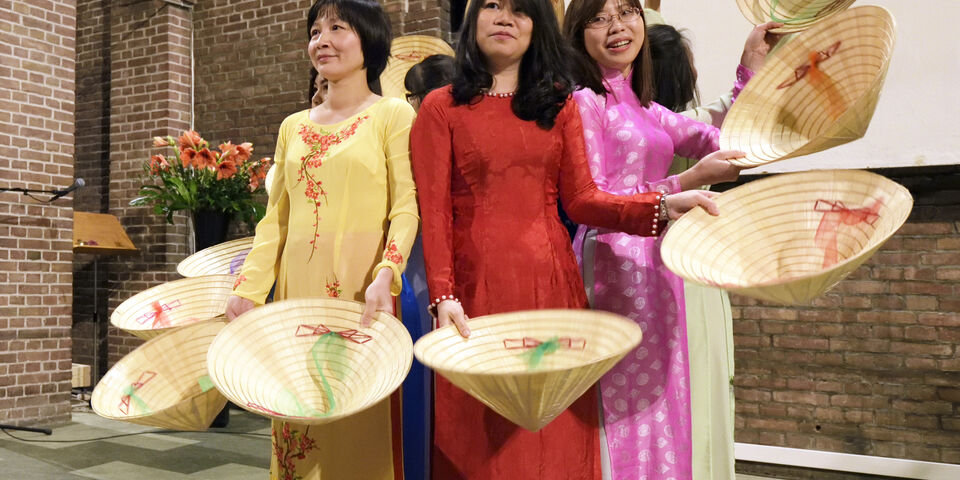The gastronomical dinner served more purposes than stimulating taste buds. The night was also a cultural exchange between different international communities in Eindhoven. Tint’s Elizabeth Fricker explains this purpose: “This night is not only an expression of hospitality, but is also a possibility to share experiences in an informal, egalitarian way.”
Both domestic and foreign (PhD-)students, expats, and university employees merged with representatives from among others industry and the municipality of Eindhoven. Post-its, pencils and provocative questions, such as “What are political differences between your home country and the Netherlands?”, ensured an open and fruitful dialog. Input coming from these round table conversations is used to improve the integration of international communities in Eindhoven.
Joep Huiskamp, program manager of the TU/e executive board, clarifies this purpose: “There are numerous international communities in Eindhoven: Chinese, Indian, Indonesian, and so on. We wish to pursue that these communities become affiliated with student life in Eindhoven, and vice versa.”
Throughout the night, traditional dance performances and short lectures made ‘Asia’ a little more tangible. Hanjo de Kuiper, representative of the Ministry of Foreign Affairs, emphasized the importance of Asian-Dutch partnerships by slightly adapting Rudyard Kipling’s infamous phrase: “East is east and west is west, and without each other they cannot succeed.”
Meanwhile, the round table conservations continued. An Indian PhD student notices improvements in welcoming expats: “An increasing amount of conservations and communication proceeds in English.” Bianca van Kaathoven, alderman student life for the Socialist Party (SP), points out that Eindhoven has always relied on a diverse labor population: “Philips attracted employees from all over the Netherlands and Belgium throughout the 1930’s and 1950’s. Today’s international workforce is hardly any different.”
There is also a lot of laughter about silly cultural differences, such as keeping promises: “If an Indonesian tells you ‘maybe tomorrow’, you should definitely not have high expectations.” The open atmosphere led to a lot of suggestions for improvements, which the representatives promised to take into account. Having enjoyed the ‘gezelligheid’, a Chinese girl smiles: “I would not dare to complain after eating such delicious food.”


Discussion